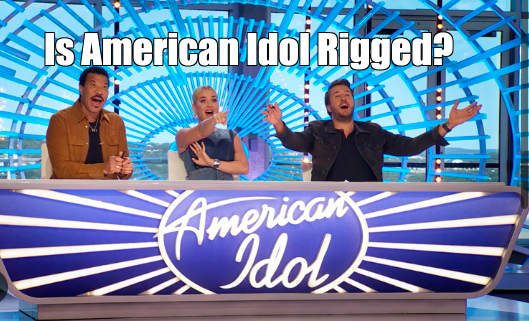
Summary
Pros
Pros of American Idol:
- Talent Exposure: It provides a massive platform for aspiring singers to showcase their talent to a national audience.
- Career Launchpad: Many participants have launched successful music careers after appearing on the show.
- Entertainment Value: The show offers high entertainment with its mix of talent, drama, and personal stories.
- Audience Participation: Viewers get to vote and have a say in the outcome, making it an interactive experience.
Cons
Cons of American Idol:
- Commercial Influence: The show can sometimes prioritize entertainment value over pure talent, affecting the authenticity of the competition.
- Pressure and Stress: Contestants often face intense pressure and scrutiny, which can be challenging on a personal level.
- Editing Bias: Editing might portray contestants in a specific light, influencing public perception and potentially affecting voting.
- Credibility Issues: Persistent rumours and speculation about the show being rigged can undermine its credibility and viewer trust.
American Idol is a popular singing competition show in the U.S. that started in 2002 with contestants from all over the country audition in front of a panel of judges to showcase their singing talents. The seated judges in the show provide feedback, however it is the viewers at home who vote to decide who moves forward each week. This TV show aims to discover new music stars, and a lot of its winners have gone on to have successful careers. American Idol is also known for its emotional stories, dramatic moments, and has been a significant influence on the reality TV genre.
The debate over whether “American Idol” is rigged has been a popular topic among fans and critics since the show began. This long-standing American singing competition has won the hearts of millions with its dramatic reveals and emotional stories. However, doubts about its fairness often overshadow the show’s many success stories. In this review, I will examine different aspects of “American Idol” to evaluate these claims of rigging and present a fair perspective on the matter.
Understanding the American Idol Allegations
The claim that “American Idol is rigged” has come up multiple times. People say the producers manipulate the results to favor contestants who will make the show more popular, or to create dramatic stories that will get more people to watch. But is there any evidence to support these claims? Is “American Idol” really a fair competition like it says it is?
Behind the Scenes: How American Idol Works
“American Idol” follows a format where contestants go through auditions in front of a panel of judges, receiving critiques. Viewers then vote for their favourites to move forward. This process seems straightforward, but skeptics point out several areas where potential manipulation could occur:
- Judge Biases: The judges, often celebrities with extensive industry experience, have their own preferences and biases. While this is natural, there are concerns about how much influence judges have over the audience’s decisions, possibly skewing the results.
- Editing Techniques: The way episodes are edited can significantly influence public perception. By highlighting certain performances or emotional stories more than others, producers might indirectly impact voting.
- Voting Mechanism: The transparency of the voting process has been questioned. Though the show claims that results are solely based on public votes, the exact numbers are rarely disclosed, leading to speculation that the outcome could be predetermined or influenced by producers.
Analyzing Specific Incidents
A lot of specific events have made people think that “American Idol is rigged.” Let’s say, in some seasons it so happened that the same singers, who were promoted a lot by the show right from the start, won or came close to winning — a fact that seemed too coincidental to many fans. Furthermore, there have been sudden changes in rules during different seasons which looked like they favored certain participants. While these may be questionable acts, but they are not evidence for rigging; rather they indicate how much this TV program tries to keep its audience interested through continuous changes.
Producer’s Input
The American Idol producers have always denied claims that the show is rigged. They believe that maintaining a fair voting system is crucial for the show’s credibility and longevity. The legal consequences of manipulating a viewer-based show are significant, so there are strong reasons to avoid cheating.
Audience Perception and Impact
The belief that “American Idol is rigged” can destroy the show’s image. It is important for a program that depends largely on viewer participation to have their trust. This may result in reduced involvement and lower ratings if majority viewers think that they do not count in their voting.
Nevertheless, ‘American Idol’ maintains its popularity among fans and stays the largest stage for upcoming vocalists despite all allegations. The success stories of former participants who managed to establish themselves as successful musicians also help negate allegations about manipulation on this show.
Conclusion
So, is “American Idol rigged”? While there are certainly aspects of the show that can be critiqued, and the editing and production choices sometimes cast doubt on its transparency, there is insufficient evidence to conclusively say that the competition is rigged. The allegations seem to stem more from sporadic observations and individual interpretations rather than solid proof.
When watching “American Idol,” or any reality TV show, it’s important to be critical. Remember that these shows provide entertainment but also have biases. It’s not fair to claim they are rigged without proof, as this undermines the hard work and talent of the contestants.
In summary, “American Idol” combines drama and dreams. It showcases genuine talent and showbiz, which can lead to skepticism but also admiration. As long as it continues to inspire and entertain, it will remain a popular American TV show, despite rumors of rigging.
